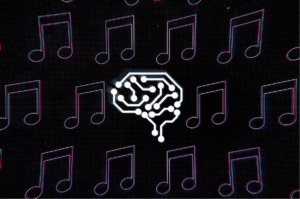The Recording Industry Association of America (RIAA) considers voice cloning by artificial intelligence a potential copyright infringement and wants the US government to add it to its piracy watch list.
In a filing with the US Trade Representative (USTR), the RIAA asked the government to add the artificial intelligence voice cloning category to its annual list of entities allegedly promoting piracy or counterfeiting. A review of notorious counterfeiting and piracy marketplaces often includes specific companies, websites, or territories to alert users to potential copyright infringement. For example, AliExpress, WeChat and The Pirate Bay have been on the list for years.
The RIAA cited only one company, Voicify.AI, which provides voice models for famous music artists such as Ariana Grande, Taylor Swift and Kanye West.
The organization believes the website allows users to rip YouTube videos and copy an a cappella song before using an AI voice model to edit it. The RIAA said: “This unauthorized activity violates both copyright and the recording artist’s right of publication.”
“In 2023, unauthorized artificial intelligence vocal cloning services have proliferated, violating not only the rights of the artists whose voices are being cloned, but also the rights of the artists who own the sound recordings in each piece of music,” the RIAA said.
The association added that artificial intelligence voice cloning has led to an “explosion of unauthorized derivative works”.
Artificial intelligence-assisted voice cloning grew last year, especially after a song using artificial intelligence versions of Drake and The Weeknd’s voices went viral in April, raising significant questions about its copyright status. YouTube removed the video of the song after a strongly worded letter from Drake’s music company.
The USTR usually releases its latest review of notorious markets early next year.
Source: The Verge

